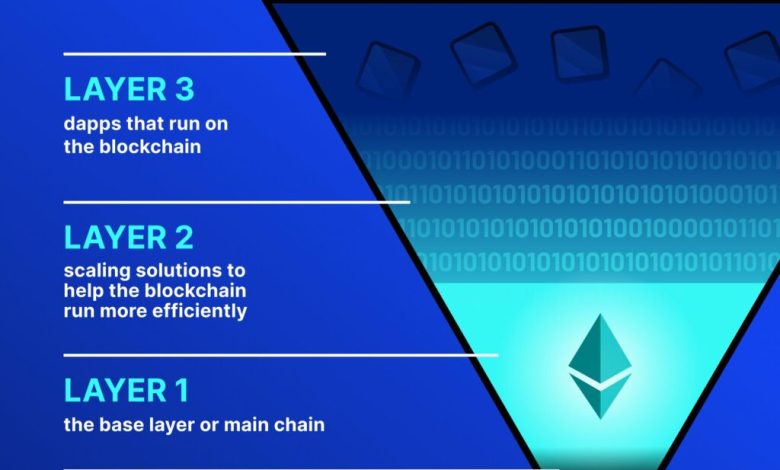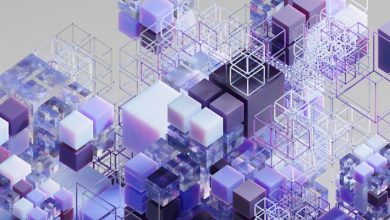Top Blockchain Platforms to Watch in 2024

- Introduction to Blockchain Technology
- Ethereum: The Leading Blockchain Platform
- Ripple: Revolutionizing Cross-Border Payments
- Cardano: A Promising Smart Contract Platform
- Polkadot: Interoperability and Scalability
- Tezos: Governance and Security Features
Introduction to Blockchain Technology
Blockchain technology is revolutionizing various industries by providing a secure and transparent way to record transactions. It is a decentralized digital ledger that stores data across a network of computers, making it virtually impossible to alter or hack. This technology has gained popularity due to its potential to streamline processes, reduce costs, and increase efficiency.
Blockchain platforms are software solutions that allow users to create and manage blockchain networks. These platforms offer a range of features such as smart contracts, tokenization, and decentralized applications (dApps). By leveraging these platforms, businesses can develop innovative solutions and disrupt traditional business models.
In 2024, several blockchain platforms are emerging as key players in the industry. These platforms are continuously evolving to meet the growing demands of businesses and users. By keeping an eye on these platforms, businesses can stay ahead of the curve and capitalize on the benefits of blockchain technology.
Ethereum: The Leading Blockchain Platform
Ethereum is widely recognized as one of the most prominent blockchain platforms in the industry. It has gained popularity for its versatility and robust capabilities, making it a top choice for developers and businesses alike. Ethereum’s smart contract functionality allows for the creation of decentralized applications (dApps) that can revolutionize various industries.
One of the key features that sets Ethereum apart is its native cryptocurrency, Ether. This digital currency is used to power transactions on the platform and incentivize network participants. Additionally, Ethereum’s scalability solutions, such as sharding and layer 2 protocols, aim to address the network’s limitations and improve performance.
As a leading blockchain platform, Ethereum continues to evolve and adapt to meet the changing needs of the industry. With ongoing upgrades like Ethereum 2.0, which aims to improve scalability and security, the platform remains at the forefront of blockchain innovation. Developers and businesses looking to leverage the power of blockchain technology should keep a close eye on Ethereum and its future developments.
Ripple: Revolutionizing Cross-Border Payments
Ripple is a blockchain platform that is making waves in the world of cross-border payments. With its innovative technology, Ripple is revolutionizing the way money is transferred across borders. By using blockchain technology, Ripple is able to facilitate fast and secure transactions, eliminating the need for intermediaries and reducing costs for users.
One of the key features of Ripple is its digital asset, XRP, which acts as a bridge currency for facilitating cross-border transactions. XRP is used to provide liquidity in real-time, allowing for instant settlement of payments. This makes Ripple an attractive option for businesses and financial institutions looking to streamline their cross-border payment processes.
Another advantage of Ripple is its scalability, with the ability to handle thousands of transactions per second. This makes it a viable option for businesses of all sizes, from small startups to large corporations. Additionally, Ripple’s decentralized nature ensures that transactions are secure and transparent, providing peace of mind for users.
Overall, Ripple is a platform to watch in 2024 for anyone interested in revolutionizing cross-border payments. Its innovative technology, fast transaction speeds, and low costs make it a compelling option for businesses looking to streamline their payment processes and expand their global reach.
Cardano: A Promising Smart Contract Platform
Cardano is a blockchain platform that has been gaining attention for its innovative approach to smart contracts. With a focus on scalability, security, and sustainability, Cardano aims to provide a robust foundation for decentralized applications. One of the key features of Cardano is its use of a proof-of-stake consensus mechanism, which helps to reduce energy consumption and improve network efficiency. This makes it an attractive option for developers looking to build secure and efficient smart contracts. Additionally, Cardano’s focus on formal verification helps to ensure that smart contracts are free from bugs and vulnerabilities, making it a promising platform for the future of blockchain technology.
Polkadot: Interoperability and Scalability
Polkadot is a blockchain platform that focuses on interoperability and scalability. It aims to enable different blockchains to transfer messages and value in a trust-free manner. This allows for greater flexibility and efficiency in the blockchain ecosystem. Polkadot’s unique design allows for multiple blockchains to be connected in a single network, creating a more interconnected and secure environment for decentralized applications.
Tezos: Governance and Security Features
Tezos is a blockchain platform known for its robust governance and security features. One of the key aspects of Tezos is its on-chain governance mechanism, which allows token holders to vote on proposed protocol upgrades. This decentralized governance model helps ensure that the platform can evolve over time in a secure and efficient manner.
In addition to its governance features, Tezos also prioritizes security. The platform utilizes a proof-of-stake consensus algorithm, which helps protect against various security threats such as 51% attacks. Furthermore, Tezos has a bug bounty program in place to incentivize security researchers to identify and report vulnerabilities in the platform.
Overall, Tezos’ governance and security features make it a platform to watch in the blockchain space. Its commitment to decentralized decision-making and robust security measures set it apart from other blockchain platforms, making it an attractive option for developers and users alike.






